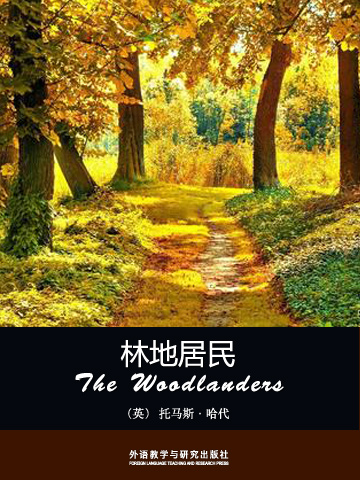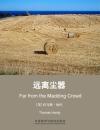Educated beyond her station, Grace Melbury returns to the woodland village of little Hintock and cannot marry her intended, Giles Winterborne. Her alternative choice proves disastrous, and in a moving tale that has vibrant characters, many humorous moments and genuine pathos coupled with tragic irony, Hardy eschews a happy ending. With characteristic derision, he exposes the cruel indifference of the archaic legal system off his day, and shows the tragic consequences of untimely adherence to futile social and religious proprieties
哈代,OM(1840年6月-1928年1月11日)是英国小说家和诗人。虽然他的作品通常属于自然运动,几首诗显示前浪漫主义和启蒙时期的文学,如他对超自然的迷恋元素。
Educated beyond her station, Grace Melbury returns to the woodland village of little Hintock and cannot marry her intended, Giles Winterborne. Her alternative choice proves disastrous, and in a moving tale that has vibrant characters, many humorous moments and genuine pathos coupled with tragic irony, Hardy eschews a happy ending. With characteristic derision, he exposes the cruel indifference of the archaic legal system off his day, and shows the tragic consequences of untimely adherence to futile social and religious proprieties
- CHAPTER I.
- CHAPTER II.
- CHAPTER III.
- CHAPTER IV.
- CHAPTER V.
- CHAPTER VI.
- CHAPTER VII.
- CHAPTER VIII.
- CHAPTER IX.
- CHAPTER X.
- CHAPTER XI.
- CHAPTER XII.
- CHAPTER XIII.
- CHAPTER XIV.
- CHAPTER XV.
- CHAPTER XVI.
- CHAPTER XVII.
- CHAPTER XVIII.
- CHAPTER XIX.
- CHAPTER XX.
- CHAPTER XXI.
- CHAPTER XXII.
- CHAPTER XXIII.
- CHAPTER XXIV.
- CHAPTER XXV.
- CHAPTER XXVI.
- CHAPTER XXVII.
- CHAPTER XXVIII.
- CHAPTER XXIX.
- CHAPTER XXX.
- CHAPTER XXXI.
- CHAPTER XXXII.
- CHAPTER XXXIII.
- CHAPTER XXXIV.
- CHAPTER XXXV.
- CHAPTER XXXVI.
- CHAPTER XXXVII.
- CHAPTER XXXVIII.
- CHAPTER XXXIX.
- CHAPTER XL.
- CHAPTER XLI.
- CHAPTER XLII.
- CHAPTER XLIII.
- CHAPTER XLIV.
- CHAPTER XLV.
- CHAPTER XLVI.
- CHAPTER XLVII.
- CHAPTER XLVIII
- 书评 写书评
- 笔记
-
书评加载中...























 京公网安备 11010802032529号
京公网安备 11010802032529号
笔记加载中...